#sense of direction
Text
what’s dysgeographica?
dysgeographica, also known as developmental topographical disorientation, is a form of neurodivergence in which a person has difficulty creating mental maps, orienting themselves or a location in space, and navigating from place to place.
some common symptoms of dysgeographica include:
getting lost easily, even in one's own neighborhood or other extremely familiar locations
difficulty memorizing even simple or frequently traveled routes
no internal compass (i.e. no sense of which way one is facing or if one has been turned around)
no sense of where familiar locations are in relation to each other
difficulty making a mental map of a building or area's layout
uncertainty about which direction a location is in, even if one knows how to get there
complete reliance on GPS navigation while traveling
rigidly following one familiar route to get somewhere, even if a better route may be available
anxiety around driving a car due to lack of confidence in one's ability to navigate as the driver
is dysgeographica just a poor sense of direction?
while many people struggle to read maps or navigate unfamiliar places, being dysgeographic means struggling with very familiar locations as well as unfamiliar ones, potentially getting lost in one's own neighborhood or workplace.
additionally, while someone who just has a poor sense of direction will generally still be able to move through the world and perform daily life activities with little to no added difficulty or distress, dysgeographic people will often find that their difficulty navigating makes day-to-day functioning more difficult (e.g. being late to work regularly due to getting lost, not being able to drive a car or travel alone).
is dysgeographica part of adhd/autism/etc?
it is possible to have dysgeographica with comorbid autism, adhd, dyslexia, dyscalculia, dyspraxia, etc. it's also possible to experience dysgeographic symptoms as secondary to one of those (e.g. having trouble navigating due to adhd inattention).
that being said, dysgeographica is not inherently connected to any other form of neurodivergence, and can be the only neurodivergence someone has. you don't need to be diagnosed with anything else to have dysgeographica.
is dysgeographica a disability?
yes, dysgeographica is a neurodevelopmental disability.
it is not, however, recognized as such by the DSM or ICD, despite research showing evidence of its existence and the impact it can have on people's lives. that doesn’t mean it’s not a real disability — what it does mean is that it can be very difficult (if not impossible) to get accommodations.
while dysgeographica would most likely not be categorized as a specific learning disability, it does have some overlap with dyscalculia and dyslexia, and can be considered a “cousin” of the specific learning disabilities much in the same way as dyspraxia.
#resource#dysgeographica#actually dysgeographic#developmental topographical disorientation#neurodivergent#actually neurodivergent#neurodivergent community#neurodiversity#neuroqueer#neurospicy#developmentally disabled#developmental disabilities#neurodevelopmental disorders#disability education#disability awareness#disability community#disability#directionally challenged#sense of direction
244 notes
·
View notes
Text
autistic things 40
issues with directions. left or right. north, west, south, east.
#autism things#autistic things#directions#sense of direction#asd#autie#autism spectrum#autism spectrum disorder#autism#autistic#actually autism#actually autistic#actually neurodivergent#neurodivergent#autism problems#autistic problems#autie problems#autistic life#being autistic#autistic community#autistic feels#autistic spectrum#autism posting#autistic post#autistic posting#autism post
228 notes
·
View notes
Text
He decided to wait till it was dark and then go back to the river and steal as many melons as he could carry and set out for Mount Pire alone, trusting for his direction to the line he had drawn that morning in the sand.
"The Chronicles of Narnia: The Horse and His Boy" - C. S. Lewis
#book quote#the chronicles of narnia#the horse and his boy#c s lewis#shasta#waiting#darkness#river#stealing#melons#mount pire#traveling alone#sense of direction#sand#desert
7 notes
·
View notes
Note
On a scale of Zoro to ten, how good is everybody's sense of direction? (Servo, consulting upside down map)
0 (Zoro): Realm
1: Oni
2: Shadow
3: Red
4: Green, Sketch
5: Lore, Speck, Ocarina
6: The Four, Blue
7: Gen, Dusk,
8: Mask, Vio
9: Steam
10: Wind
(It should be noted that Oni has no concept of directions because he is a mask, and that if he were to ever be freed from his mask then his sense of direction would resolve itself somewhere around the 6-7 mark. It should also be noted that Shadow has almost no concept of directions because he doesn't care.)
#Changeling Answers#DL Questions#Servo#All the DL Links#Directions#sense of direction#Realm does not have it#Wind has all of it
17 notes
·
View notes
Text
Prayers
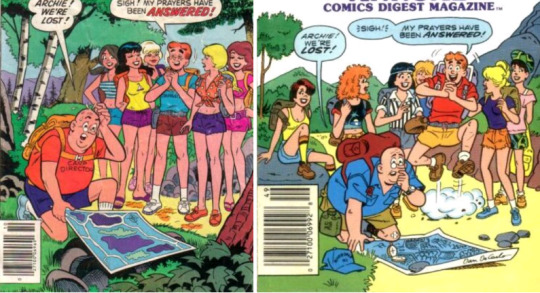
Okay, fine -- Archie would really enjoy being lost in the woods with a bunch of pretty girls. Makes sense. Except. Wouldn't Mr. Weatherbee's presence change the equation?
#Archie Comics#Archie Andrews#Betty Cooper#Veronica Lodge#Camp counsellors#Or troupe#Mr. Weatherbee#Map#Lost#Lost in woods#Prayers#Stan Goldberg#1979#Dan Decarlo#1986#Jump for joy#Sense of direction
6 notes
·
View notes
Text
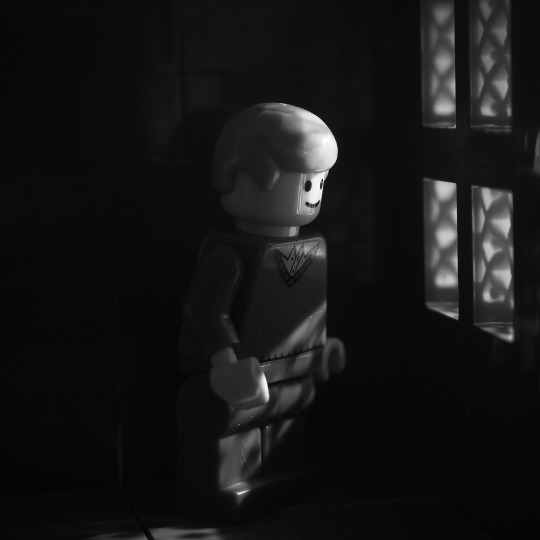

Norm Alguy.
My wife gets so mad that she has no sense of direction. One day she packed her bag and right.
#lego#fun#legolonia#minifigure#funny#minifig#guy#norm#everyday#toy photography#lego photography#black and white#normal#just a normal guy living a normal life#greyscale#stuff#b&w#just a normal guy living a normal life.#norm alguy#sense of direction
3 notes
·
View notes
Text
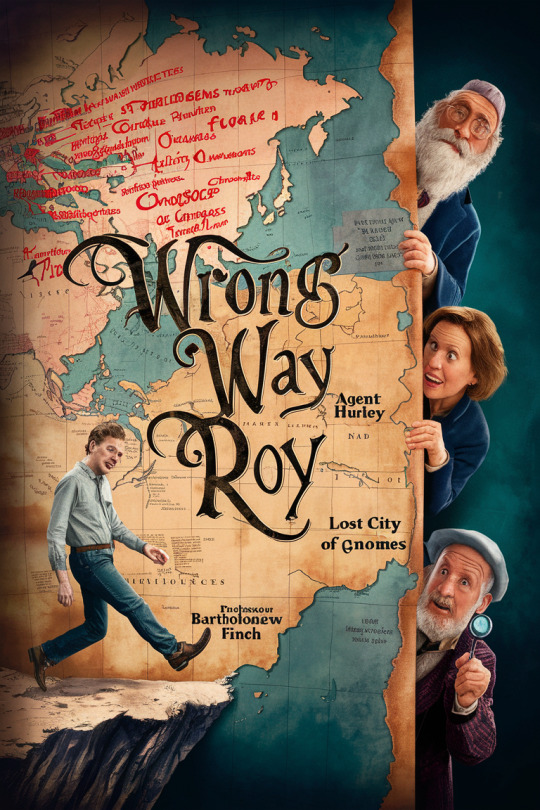
Prompt: generate a movie concept about a man with the worst sense of direction ever. we are talking "capable of getting lost while walking from the toilet to the shower in his own apartment" levels of geographical ineptitude. He has an uncanny knack for ending up in locations where no one should be able to enter, such as secret military sites, sealed locations or even... mythical or nonexistant places.
Title: Wrong Way Roy
Tagline: He has no idea how he got here.
Logline: Roy Mallory, a lovable man with a debilitating sense of direction, has an uncanny ability to stumble into the most impossible places – top-secret government facilities, forgotten mythical realms, even alternate dimensions. This time, his wrong turn leads him on a hilarious global adventure, pursued by a bewildered government agent and chased by the very people (or things) he shouldn't have encountered.
Characters:
Roy Mallory: A kindhearted but hopelessly directionally challenged man. Despite his struggles, Roy maintains an optimistic outlook and a knack for making friends in the most unexpected places.
Agent Dana Carter: A sharp and by-the-book government agent tasked with retrieving Roy from classified locations. Her frustration with Roy's misplaced sense of adventure is constantly tested.
Professor Bartholomew Finch: A quirky and eccentric conspiracy theorist who becomes Roy's reluctant guide through the fantastical and potentially dangerous places he finds himself in.
Plot:
Roy Mallory, a man with the worst sense of direction imaginable, has a habit of getting lost in the most bizarre way possible. One minute he's picking up his morning coffee, the next he's inexplicably standing in the middle of a high-security military base, surrounded by bewildered soldiers.
This time, Roy's wrong turn on his way to work leads him to a hidden portal, transporting him to a mythical city populated by grumpy gnomes with a serious grudge against misplaced tourists.
Agent Dana Carter, a government agent tasked with monitoring anomalous activity, is assigned to retrieve Roy. She becomes increasingly exasperated as Roy, oblivious to the danger, seems to find a way into the most off-limits locations imaginable – guarded caves guarded by three-headed hydras, sunken pirate treasure troves, even a parallel dimension where gravity works differently.
Professor Bartholomew Finch, a conspiracy theorist who believes Roy's "accidents" are actually proof of a hidden reality, offers his (mostly wrong) expertise. He joins Agent Carter on a global chase, trying to predict Roy's next illogical destination and keep him safe from the various creatures and government agencies who want him out of sight.
The climax involves Roy, with his unintentional charm and knack for making unlikely friends, finding a way to solve the problem that landed him in this mess. He may be terrible with directions, but Roy stumbles upon a solution no one else could have predicted.
Humor:
Roy's constant confusion and bewildered explanations for how he ended up in impossible locations.
Agent Carter's exasperated reactions to Roy's misadventures and Finch's outlandish theories.
Roy's interactions with the various inhabitants of his accidental destinations, creating a series of fish-out-of-water scenarios.
Visual gags based on the absurdity of Roy's wrong turns.
Themes:
Finding humor in the unexpected and embracing your flaws.
The power of kindness and good intentions, even in the most bizarre situations.
The idea that sometimes, getting lost can lead you to the most extraordinary places.
#ai generated#stupid ideas#shitpost#imaginary movie#google gemini#movie poster#poster#genre: magical realism#genre: comedy#government agencies#sense of direction#ineptitude#oblivious#fantasy races
0 notes
Text

This dog would not have made the cut for the Homeward Bound movies. Just saying.
(…Probably running away…)
0 notes
Text
How To Improve Your Sense Of Direction
— By Christine Ro | February 18, 2024
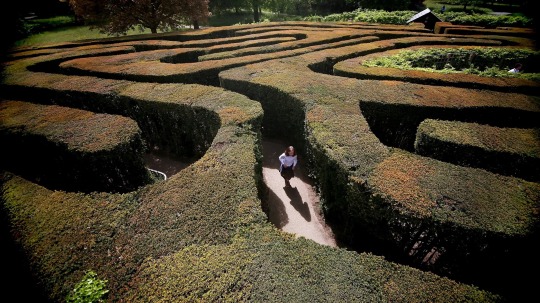
A Young Girl Navigating Hampton Court Maze in 2009. Credit: Getty Images
Some people can strike off on any journey with no guide except their 'Pigeon Senses'. How do they do it? And can this ability be learned?
Ralph Street loves maps. Appropriately for someone with his surname, he studied geography and town planning. And well before that, his parents regularly took him out orienteering – a sport that involves racing between two points using a topographical map and a compass.
"I don't really remember a time before orienteering," Street reflects. "My parents took me orienteering the first week I was born."
Street refers to this as free training, as he now competes internationally as an orienteer, from his home base of Oslo in Norway. But these elite skills have also been useful in everyday life. Street remembers a childhood trip from London to Glasgow, with friends who deferred to him as they realised his knack for getting around the new city. In general, he tries to be diplomatic when he has a difference of opinion with another person about the correct way to go. "I'm usually right, but… we might do their thing first and [then] realise they're wrong."
Other orienteers also report better spatial memory than average. But competitive orienteers have an unusual amount of navigation practice. In fact, the latest neuroscience and psychology research suggests that there are plenty of ways for ordinary people to improve their spatial skills.
Why Some People are Better at Getting Around
Street took up the sport of orienteering at the age of nine. As his experiences suggest, childhood exposure shapes people's comfort and confidence with navigation. Kids having the opportunity to move independently around varied environments matters here. "Experiments with non-human animals suggest that passive motion is not that good because you don't basically pay attention," says Nora Newcombe, a psychology professor at Temple University in Philadelphia.
People who grew up outside cities, or in more spatially complex cities (think Prague rather than Chicago), also appear to be better able to navigate as adults. This is related to the distances travelled and the variety of areas traversed.
Even as adults, "we do have good evidence that people who range more widely around their environment" have better spatial skills, says Newcombe. Going straight back and forth between the home and the workplace doesn't cut it.
In many societies, girls and women have limited opportunities to practice their navigation skills, and this is thought to be a key reason for the myth that women are innately worse at navigation than men. Women sometimes consider themselves to be worse navigators than men even in studies where their performance is the same, due partly to gendered stereotypes. (Older men are the group most likely to overestimate their navigation abilities.)
Overall, gender inequality is associated with gendered differences in navigation ability. This points to the role of culture in creating such differences (or the perception of such differences). "People tend to overestimate the effect of gender, and also they tend to assume that the effect of gender is somehow independent of cultural factors," says Pablo Fernandez-Velasco, a philosopher and cognitive scientist at the University of York and University College London.

One Way Scientists Can Test a Person's Sense of Direction is Using a Kind of Virtual Maze. Credit: Getty Images
Indeed, anthropology research suggests that in more gender-egalitarian societies, gender differences in navigation ability vanish. One relevant study, from 2019, concerns the Mbendjele BaYaka people in the Republic of Congo, who hunt and gather food in the rainforest without using tools like maps or compasses. Research participants were very accurate overall in tests of pointing accuracy, with no differences between men and women. The scientists attributed this to the similar distances travelled (and spatial experience gained) by women and men in this society.
Haneul Jang, a researcher at the Max Planck Institute for Evolutionary Anthropology in Leipzig, Germany, recalls one yam foraging trip with a BaYaka woman, when the two wandered off from the main group and ended up in the middle of nowhere in the forest. Jang's Global Positioning System GPS was unable to help find trails, but her BaYaka companion "immediately looked up, checked the sun and started to walk in one direction, and soon after we found a trail".
Gender also has a cultural influence on whether girls are steered toward certain occupations where navigation is critical. Through pointing and model-building tests, Newcombe's research has found that experienced geologists have higher navigational competence than experienced psychologists. This link to the fields of science, technology, engineering and medicine (Stem) chimes with what Street has noticed in his own community: that many orienteers end up in fields like engineering, maths and physics. (He himself works in IT.)
Related to the effect of education are income and privilege, and global research suggests that a nation's GDP per capita is linked to average navigation ability.
How Brains Handle Navigation
How does all this get processed in the brain? One element is cognitive maps, which are essentially mental models of space. Researchers continue to debate what shape cognitive maps take: for instance, whether humans create representations of maps in their brains to navigate, or if they are graphs.
"The map view basically says that there's an overall common framework that we're trying to fit new information into. And the graph view says, well, we can't really even do that unless the new information is attached to some node in the graph," says Newcombe. This may seem like a very academic distinction, but "it influences our view of whether or not people can combine local spaces and can infer new routes that they have very little information about," she explains.
The cognitive map is believed to reside in the hippocampus, a seahorse-shaped region of the brain involved in memory. Neuroscience research has shown that the structures around the hippocampus also play key roles in orientation. For instance, the entorhinal region has been described as the site of the "goal direction signal".
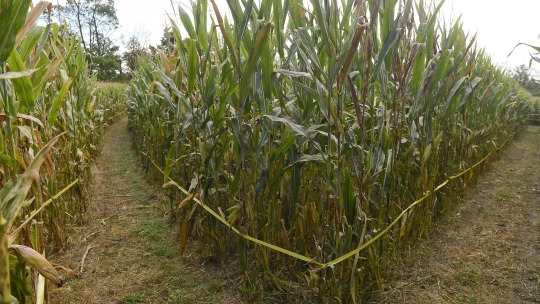
Using Aids Such as Maps May Lead to a Dependence on Navigational Help. Credit: Getty Images
Along with knowing which direction you're facing and the direction of your destination, being able to identify permanent landmarks is implicated in good navigation. This ability to recognise stable landmarks has been linked to activity in the retrosplenial cortex, which forms part of the wrinkly outer layer of the brain.
The brains of highly skilled navigators look different to those of others. One of the best-known examples comes from London cab drivers, who take years to acquire what's reverentially referred to as "The Knowledge". These cabbies' brains show growth in the hippocampus.
Though there are various orientation and direction tests, there's no gold-standard psychology test of navigation skills, especially across cultures. There are major research gaps in how certain cultures view and pass on information about navigation, let alone how those skills might be assessed in some sort of standardised way.
"The traditional [test] is something like a virtual maze," says Fernandez-Velasco, which isn't necessarily adapted to how wayfinding works in different environments and cultures. For instance, while Western navigation tends to privilege visual cues, certain other cultures are more attentive to cues based on smell, hearing, or other senses. "It's hard to capture all of this with the same test, especially with the same test that tends to be very biased towards what we consider good navigation in the Western context and perhaps in the urban context."
To improve the state of knowledge overall – as well as to help preserve types of navigational knowledge at risk of fading away, such as wave piloting in the Marshall Islands – Fernandez-Velasco says there are important questions for navigation research around "how to engage with local collaborators" and "consider non-colonial knowledge systems".
How to Become a Better Navigator
Misconceptions abound about human navigation. "One myth is that you think you cannot improve," Newcombe says. Fernandez-Velasco agrees: while their brains show less plasticity, adults can definitely still learn these skills.
Newcombe is also bothered by people considering navigation abilities irrelevant in the era of GPS. Phone batteries can die and systems can make mistakes, as suggested by accounts of people driving into bodies of water on the advice of their GPS.
Navigational aids like maps, compasses, rock art and stick charts are types of 'cognitive artefacts' – useful in many cases, but they can lead to a dependence. "Sometimes when you're using a cognitive artefact, you're offloading your cognitive abilities to that cognitive artefact," Fernandez-Velasco says of GPS, especially. "That itself might have some negative effect on your ability for navigating over time."
People can train themselves to better notice environmental cues like the wind, Sun and slopes, whether they're in rural or urban settings. "There are cues that a lot of people don't pay attention to," Newcombe says. Pursuits like sailing and scouting can help. Street encourages people to join their local orienteering club.
Not everyone will have the resources or opportunities to participate in these kinds of activities, but some principles can be put into practice while simply walking or wheeling around. For one thing, getting better at navigation requires changing our relationship with risk. "A lot of people aren't willing to explore because they're afraid," Newcombe says. "Lots of adults have quite a lot of spatial anxiety. Basically, they don't want to waste time, but also they are afraid that something bad will happen."
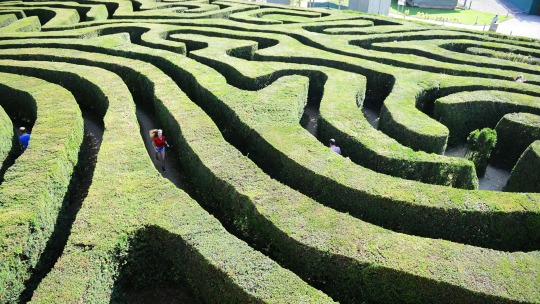
People Who Spend More Time Exploring Their Environment Tend to be Better at Navigating. Credit: Alamy
In a vicious cycle, that anxiety can worsen navigation, as anxiety takes up the mental space needed for spatial tasks. "If you make people anxious in the lab, their ability to navigate seems to deteriorate," says Newcombe. Yet where safe to do, getting lost occasionally serves our sense of direction overall.
While cultural variation makes it difficult to provide universal tips for improving navigation, in general, "the more you move, especially in ways that are slightly challenging, the better you'll become at navigation," Fernandez-Velasco says. "Part of the problem is that people who are bad at navigation sometimes are unconfident and avoid situations that involve navigation, so there could be this negative feedback."
For people who can't imagine wayfinding without a phone app, there are still ways to exercise spatial skills with this tech. Don't let Google Maps always decide your route, Street says.
Change the settings where possible, Newcombe suggests. The default on many apps is that "wherever you're going is straight ahead, which is a terrible way to learn. I totally advocate keeping north on the top all the time." As well, "keep zooming in and zooming out so you can both see the fine-grained information you need to navigate, but also see the landmarks."
Getting an optimal amount of sleep may help too. One global study found that for participants aged 54 and older, sleeping seven hours a night was linked to the best performance in a navigation game.
So while an orienteer in Norway and a forager in the Republic of Congo might have different ways of getting around their environments, the good news is that they – and you – can continue to hone these skills over a lifetime.
0 notes
Text
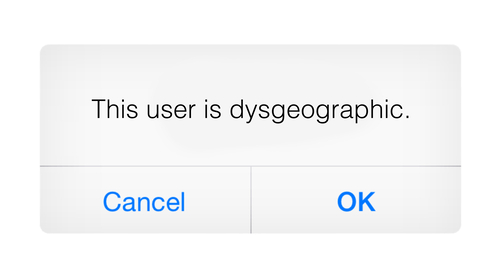
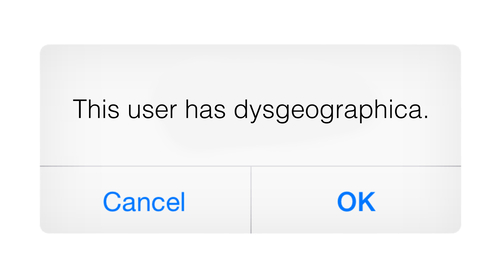


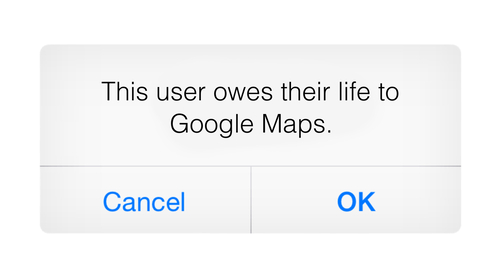

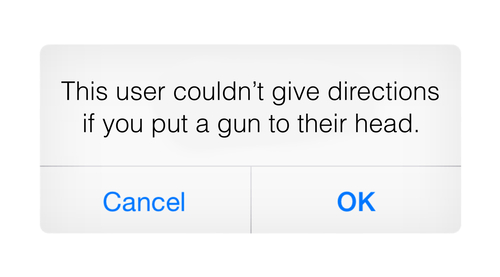
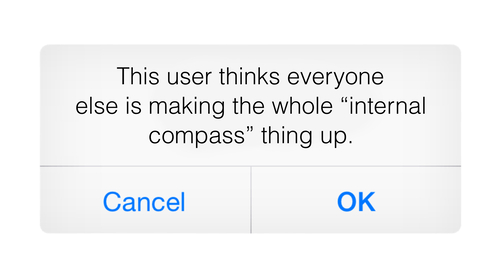
dysgeographica alert-style userboxes
#userbox#this user#dysgeographica#actually dysgeographic#developmental topographical disorientation#neurodivergent#neurodivergence#actually neurodivergent#neurodivergent community#neuroqueer#neurospicy#developmentally disabled#developmental disabilities#neurodevelopmental disorders#disability#actually disabled#disability community#directionally challenged#sense of direction
57 notes
·
View notes
Text
Scrubb was quite right in saying that Jill (I don't know about girls in general) didn't think much about points of the compass.
"The Chronicles of Narnia: The Silver Chair" - C. S. Lewis
#book quote#the chronicles of narnia#the silver chair#c s lewis#eustace scrubb#quite right#jill pole#compass#sense of direction#girls
0 notes
Text

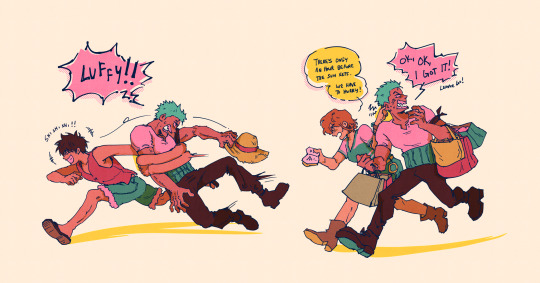

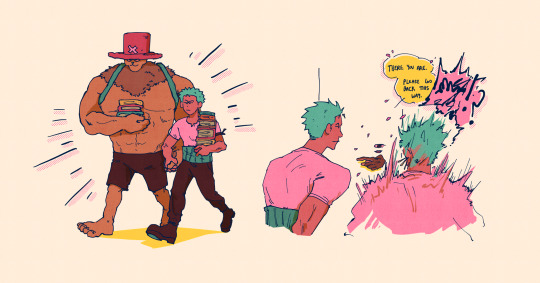
how to guide your mossball (ID in alt)
#roronoa zoro#zoro#opfanart#one piece#monkey d luffy#nami#sanji#usopp#tony tony chopper#nico robin#not sure if i should even tag her shes just an eye and a hand…. anyway this was for zoro’s birthday ! uploading it a bit late here#definitely an overdone concept i Think but i wanted to draw smth pre-ts with his beloved crew :D#if im not forgetful ill make it a set and draw another with the rest of the straw hats including vivi and then other non-sh!#so many people have come face to face with his terrible sense of directions… i love to think of how those that had the time start to adjust#and problem solve it... its not foolproof though im sure zoro will find a way to clip thru the universe#ruporas art
7K notes
·
View notes
Text
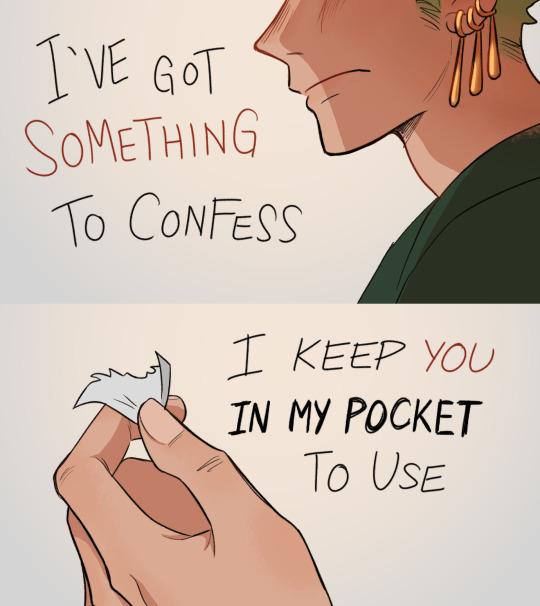

I think Zoro should keep a piece of Luffy's vivre card that Sabo gave him
#one piece#zolu#roronoa zoro#monkey d. luffy#idiots with no sense of direction except to head towards each other 🫶#so technically he doesnt need the vivre card#but for the yearning purposes#he does
3K notes
·
View notes
Text
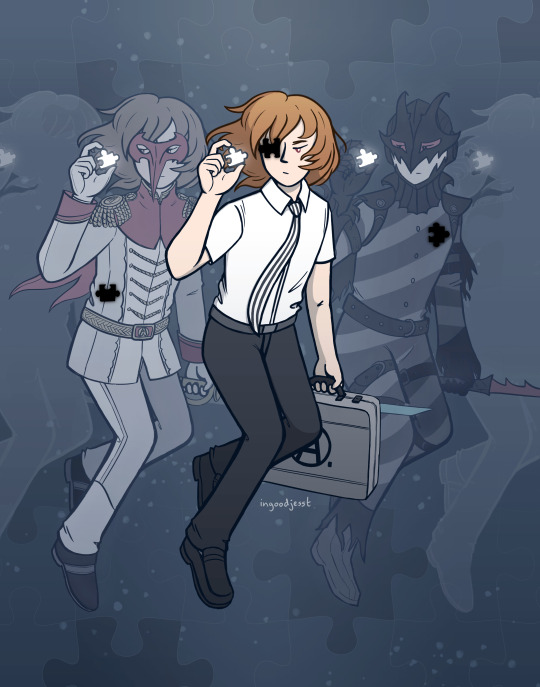
have you put the pieces together yet, detective
#goro akechi#akechi goro#persona 5#persona 5 royal#p5 akechi#p5 spoilers#persona 5 fanart#jesst some art#i may have worked on this for... just under two weeks? i had like. so many fckgin thoughts i might make a process/concept breakdown post#it's honestly just for my own peace (haha piece) of mind because i overthought about. SosoooOoOo many motifs and symbols and i just wanna#idk PUT EM ALL somewhere........ maybe it'll become its own jessay of mine. god. who can say.#also DUDE tumblr rly does crunch up quality wow ouch#unironically a core thematic inspiration for this piece is a quote from the folding ideas' video 'the nostalgia critic and the wall'#'it doesn't all make sense or resolve or coalesce because we don't all make sense'#'everyone is the illusion of order constructed brick by brick out of chaos'#i've watched that video essay through at least. a dozen times at this point. everything about it. yeah. it's good.#this piece initially went many different directions and i have realized ah yes to fully explore just THESE themes that i'm interested in as#they relate to goro akechi i will need to draw. at least two more pieces. sdlfhsdlkfjsd
563 notes
·
View notes
Text
OK so my friend is making fun of me for not #knowing my cardinal directions so I just wanna check
lmk how old u are & where you're from in the tags?
#like i literally found out north is up on maps Today bcs he Told me#but in my defense i have a learning dissability that affects my spatial insight & sense of direction lol
2K notes
·
View notes
